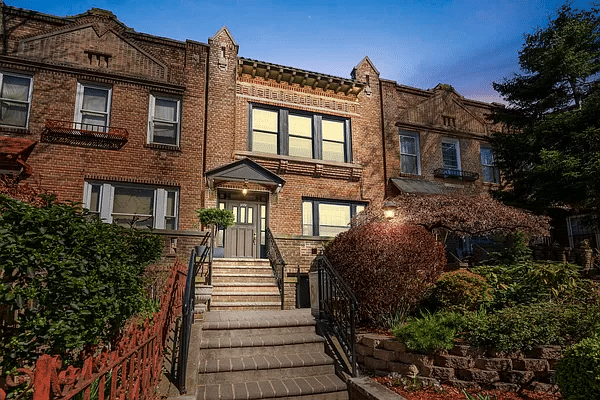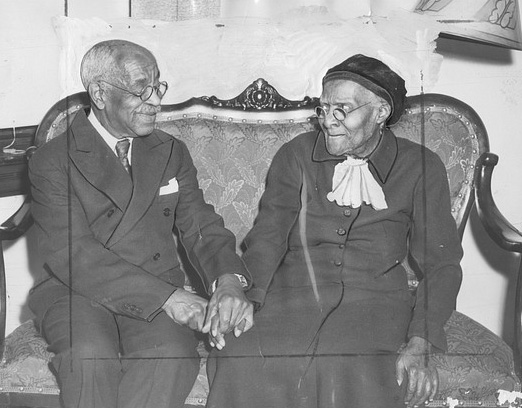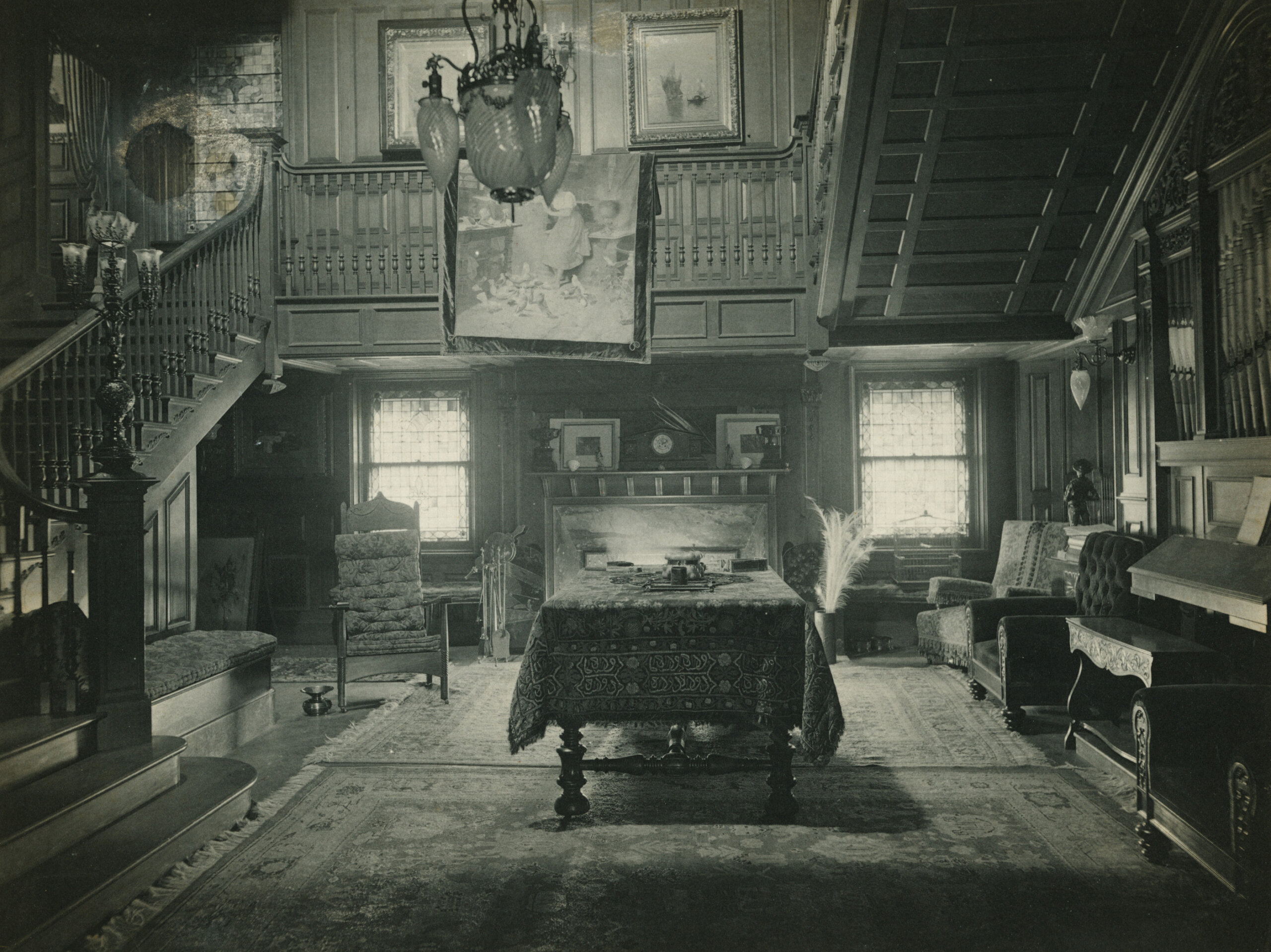Walkabout: The Fall of the Jenkins Family Financial Empire, Part 3
Read Part 1, Part 2, Part 4, Part 5, and Part 6 of this story. The “perp walk.” That walk of shame invented centuries ago where the public could watch the accused be brought to justice, where the high could be made low, and where public judgment could be passed without any facts being presented…

Read Part 1, Part 2, Part 4, Part 5, and Part 6 of this story.
The “perp walk.” That walk of shame invented centuries ago where the public could watch the accused be brought to justice, where the high could be made low, and where public judgment could be passed without any facts being presented at all.
After all, if you weren’t guilty, the law wouldn’t be arresting you, now would they? Bright camera lights and flashes going off in people’s faces, and reporters hurling stupid questions at people being arrested, like “How does it feel?” and “Why did you do it?” may be a common 21st century phenomenon, but it’s really well over a hundred years old, only the equipment’s changed.
For the Jenkins family, Brooklyn’s premiere financial family in the early 1900s, the perp walk was the ultimate disgrace, being hauled into court for financial improprieties, on the heels of one of the worst (so far) financial meltdowns in 20th century history.
The Panic of 1907, and the involvement of some of Brooklyn’s banks, was chronicled in Parts One and Two of our story. The first casualty of that Panic was Borough Bank of Brooklyn’s president, William Maxwell. He and other officials in his bank had been caught with their fingers in the till, and their books in disarray.
Maxwell, faced with disgrace and prison, killed himself after spending three days in a squalid public jail cell. He and John G. Jenkins, the venerable patriarch of the Jenkins family, had been close business associates. Jenkins had taken out a very large no-collateral loan from Maxwell’s bank, one of the questionable loans made by the institution that helped tip it over the edge when the Panic struck.
Just months prior to the Panic, John Jenkins, Sr. had been riding high as one of Williamsburg’s most powerful men. In banking since he was 17 years old, he now had over 52 years of experience, all of them at the First National Bank of Brooklyn, located at the base of the new Williamsburg Bridge. Jenkins may have been a great banker, but from all the evidence, he was also a master manipulator of both people and the banking regulations, and on top of it, an anti-Semite.
Sometime prior to 1907, he hired a man named Isaac Hamburger to be a cashier at the bank. Jenkins told the newspapers that he figured because Hamburger was Jewish, he’d be able to bring Jews into the bank as customers.
A bank cashier was not a modern teller. The position was closer to bank officer, and the cashier approved loans, worked with customers, went down to the vault for large sums of money, was the public face of the bank for many depositors, and otherwise was a very valuable and extremely trustworthy employee of any bank. Hamburger soon proved an excellent cashier, and was popular with customers and with the board of directors of the bank.
On May 17th, 1907, Jenkins pushed Mr. Hamburger into resigning, citing a need to “clear the atmosphere.” He also announced that he was going to take a look at Hamburger’s books, even though there had never been any hint of impropriety on Hamburger’s part, whatsoever.
So astonished, and then outraged were the other board members of the bank, that they, except for John Jenkins, Jr., all quit in protest of the firing.
Jenkins tried to justify himself to the Eagle saying, “This neighborhood over here was filling up with Jews and they were getting prominent in business, and I had an idea that by putting one of them in as cashier, we might get their business, but I was disappointed. Hamburger didn’t bring in a single one.”
Jenkins told Hamburger at the board meeting that he should take a thirty day vacation. When asked why he would do that now, Jenkins told him that he was going to look at his books, and he didn’t want him there.
Hamburger was quite indignant, and announced that if his books were going to be examined, he damn well was going to be there to defend himself an answer any questions. When he refused to take the vacation, Jenkins “had no choice” but to fire him, to the astonishment of the assembled board.
One of the directors, Moses May, took exception to Jenkins’ handling of Hamburger, and told him in the board meeting that he would react the same way that Hamburger did, and the man had the right to defend himself.
All of the other board members, except Junior, agreed. Isaac Hamburger, Moses May and another board member turned in their resignations right then and there. By the end of the evening, the rest of the board of directors had followed suit, leaving only John Jenkins and his son.
Jenkins offered to buy back any stockholder’s shares, and one by one, the resigning board members sold their shares back to Jenkins at $390 a share. Only two did not, and they were in Europe at the time, and hadn’t been reached as of yet. Jenkins told the Eagle, “You can have but one captain to a ship, if you want it run right. Well, I’m the captain of this ship, and I’m going to run it as long as I stay here.” Famous last words.
A day later, Jenkins was interviewed again, and announced that he didn’t know how any suspicion of Mr. Hamburger’s alleged wrong doing had gotten started. He was shocked, just shocked. “You may rest assured that Mr. Hamburger is alright.” He said.
“You may be sure that anything anyone has said reflecting on Mr. Hamburger was untrue. We have made an examination of his books and they were straight as a string.” He went on to explain that the retirement of Mr. Hamburger had cleared the atmosphere in the bank, which had been made cloudy by his presence.”
Jenkins reiterated that that was due to the fact that “Hebrew deposits” were down, and that Hamburger had done nothing to bring them back, or to bring in new Jewish business. It was now over, a new cashier was in place, and the “boss” had spoken.
Well, the Lord works in mysterious ways, and Isaac Hamburger, Moses May and the other former board members of the National Bank of Brooklyn soon realized that their abrupt exit from the world of banking in the spring of 1907 enabled them to dodge a barrage of bullets, specifically two huge cannon sized bullets called the Panic of 1907 and the fall of the Jenkins Empire. Certainly the second had the unmistakable scent of schadenfreude in the morning.
The front page of the Brooklyn papers on November 26, 1907 announced that disgraced banker William Maxwell had committed suicide. This sensational story shared the front page with the story of John G. Jenkins, Junior’s arrest for forgery and other charges.
Jenkins was indicted for making false entries in the bank’s books to cover up loans made to dummy borrowers which were only fronts for himself and his brother, Frank G. Jenkins. The loans came to over $557,000, a sum which would be millions today.
Jenkins and his lawyer, Stephen C. Baldwin, saw the perp walk that Maxwell and his co-defendants Gow and Campbell endured, with their pictures posted on the “Rogues Gallery,” and they pre-empted the public show by having Jenkins turn himself over to the court for indictment, making bail, and getting out of there before the police even knew it had happened.
There would be no public march in handcuffs from the jail to the courthouse for him. His brother Frank, and his father, John Jenkins, Senior, came to the courthouse and made the bail payment. People familiar with the case were surprised Frank had not been arrested, too.
Unfortunately, no one thought to warn the other brother, Frederick, because the police came to his house, at 452A Hancock Street, and arrested him, taking him to the court for indictment. His walk of shame followed.
The Attorney General, city law enforcement, State banking officials, and other interested parties were all over the records of the Jenkins Trust, as well as the records of the Borough Bank of Brooklyn and its affiliate, the International Trust Company.
The trail of corruption led them to the senior Jenkins and his First National Bank of Brooklyn. All of these institutions were intertwined, with fake loans, bogus investments, dummy companies, cooked books, and financial impropriety of the worst kind.
The Panic of 1907 had cracked open the façade of respectability and fiscal responsibility and found an orgy of greed had been taking place for years.
It soon became apparent that the Jenkins men and their co-conspirators had been enriching themselves greatly while playing with depositors’ money. They had been covering up their losses by creating fake loans and moving money around from institution to institution, if not physically, then through creative accounting.
How deep into the bank’s hierarchy did this go? Was it only the people on top? Were the different boards of directors involved? The middle management, the lowly clerks and bookkeepers? The courts and the people wanted to know.
It didn’t take officials very long to start handing down more indictments. In December of 1907, the courts handed down new indictments for John G. Jenkins, Junior, and his brother Frederick. This time, they also indicted Frank Jenkins and the patriarch himself, the high and mighty John G. Jenkins, Senior.
The new charges against Junior and his father and brother Frank were for conspiracy and perjury. Frederick was indicted for conspiracy only. All four pleaded not guilty, and bail was set at $10,000 for John Senior and $2,500 more for his sons, who were already on bail for the forgery charges.
All of the banks and trusts involved were seized by the state, and put into receivership, so they could re-open and depositors could get their money. New officers and managers were put into place.
The search for qualified men who had no ties to any of the institutions involved took banking officials all over the state, and the positions were filled with both local men and men from upstate and Long Island.
The Grand Jury questioned board members of all of the institutions, and as one board member of the Jenkins Trust, a brewer named H. Scharmann would later tell reporters, “We sat there as directors and we didn’t know what was going on. I believe now what old man Jenkins said when he told us ‘We were a lot of chair warmers.’ I did not know what he meant at the time, but I know now.”
Next time: The investigations and the court cases continue. More devious dealings are uncovered, one defendant drops dead, someone else tries to commit suicide, and the fall of the Jenkins Empire takes its toll on the institutions and depositors alike. The story of the biggest banking scandal you’ve never heard of continues.









What's Your Take? Leave a Comment